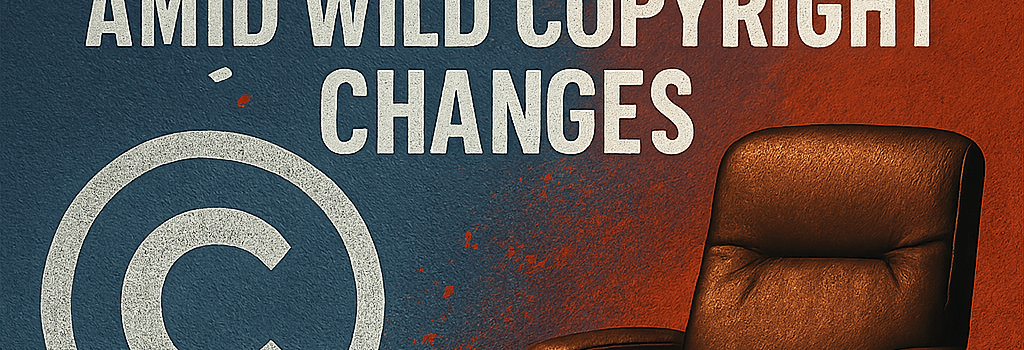US Copyright Office Stays Leaderless Amid Wild Copyright Changes

Leadership Vacuum Amid AI Copyright Turmoil
The explosion of generative AI has triggered dozens of high-stakes lawsuits that challenge the fundamental principles of copyright law. At the same time, the United States Copyright Office (USCO)—established under Title 17 of the U.S. Code—finds itself without a permanent Register of Copyrights for over a month. The absence of a confirmed leader comes as the Office is issuing pivotal notices and policy studies related to AI training, fair use determinations, and digital rights management.
- Over 40 AI-related copyright cases active in federal courts as of July 2025.
- Recent USCO report on generative AI and textual data, cited in a class-action suit against Suno and Udio.
- Administrative rulings on automated registration and digital certificate issuance underway.
In May 2025, Register Shira Perlmutter was abruptly dismissed via email from the White House’s Deputy Director of Personnel. Within days, Librarian of Congress Carla Hayden—Perlmutter’s appointing authority—was also removed by an email directive. This dual ouster has created a jurisdictional standoff over whether the President can remove the Librarian of Congress, and by extension, the Register of Copyrights.
Legal Dispute Over Authority and Precedent
Central to the litigation is the interpretation of Title 17, sections 701, 702, and 713:
- 17 U.S.C. § 701: Establishes the U.S. Copyright Office under the Library of Congress.
- 17 U.S.C. § 702: Stipulates that the Librarian of Congress appoints the Register of Copyrights.
- 17 U.S.C. § 713: Defines the Register’s duties, including certification of copyright registrations and advising Congress.
“The President has no authority to remove the Register of Copyrights—the power lies solely with the Librarian of Congress.” —Senator Alex Padilla
Defendants argue that under the Constitution’s executive authority, the President can install an Acting Librarian, who can then appoint an Acting Register. Plaintiffs counter that any such removal violates both the plain text of Title 17 and historical practice, which has required Congressional consultation for senior Library appointments.
Operational Impacts: Certificates, Board Appointments, and AI Guidance
Operationally, the USCO immediately paused the issuance of copyright registration certificates, affecting approximately 20,000 applications. On May 29, the Office resumed operations—but with certificates bearing a blank signature block where the Register’s name would typically appear. The Office asserts that this does not invalidate registrations, citing 37 C.F.R. § 202.3(b)(4), which does not explicitly mandate the Register’s signature.
- Electronic Metadata and Hashing: The Office has integrated SHA-256 hash stamping in its digital registry to ensure content integrity, reducing reliance on traditional signatures.
- Mechanical Licensing Collective (MLC) Recertification: The MLC’s three-year certification period expires in Q3 2025. Without a duly appointed Register, formal recertification is in limbo, though MLC sources suggest continued operation under existing statutes.
- Copyright Claims Board Vacancy: One of three positions is expiring. Title 17 requires Librarian and Register consultation for appointments, raising questions about the legitimacy of any interim appointee.
Implications for AI Training Data Pipelines
As AI developers refine data ingestion workflows, USCO policies on fair use and text-and-data mining are critical. Many teams leverage automated rights-clearance platforms using APIs to query copyright status. Without clear guidance or updated regulations, companies face increased legal risk in:
- Ingesting copyrighted text lacking explicit licenses.
- Implementing metadata schemas (Dublin Core, ONIX) for content provenance.
- Using blockchain-based registries for immutable proof of license transactions.
IP attorneys recommend adopting adaptive compliance platforms that track jurisdictional changes in real time and integrate on-chain credential verification for large-scale model training.
Legislative Outlook and Reform Proposals
In July 2025, Representatives Smith and Lee introduced the Copyright Office Reform Act (H.R. 4321) to clarify appointment authority and mandate a 90-day timeline for filling vacancies:
Key Provisions
- Amends Title 17 to allow temporary appointments by the Librarian pending Senate confirmation.
- Requires digital certificates to include the Register’s digital seal or cryptographic signature.
- Establishes a biannual oversight hearing before the House Judiciary Committee on copyright policy and AI impacts.
The Senate Judiciary Committee has scheduled hearings for August 14, 2025, to discuss the bill and hear testimony from stakeholders including the Content Authenticity Initiative, OpenAI, and the Software & Information Industry Association (SIIA).
Conclusion: Path Forward for Stable Copyright Oversight
As generative AI and digital platforms continue to disrupt content creation, the USCO’s leadership crisis undermines both copyright certainty and innovation. Congressional action and prompt Senate confirmation of a new Register—and potentially a new Librarian—are essential. Modernizing the Office’s digital infrastructure with blockchain, enhanced APIs, and cryptographic signing can bolster the Office’s resilience to future leadership vacuums.